Dentists see more teeth grinding pandemic stress in patients
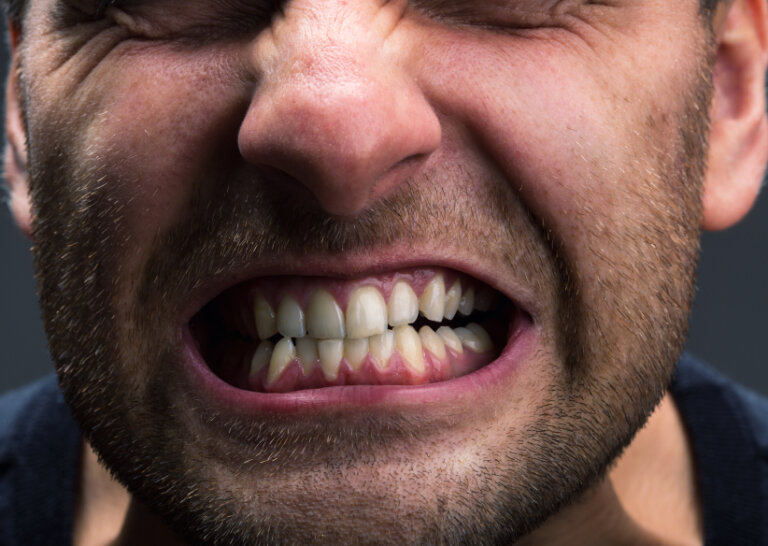
Teeth Grinding Caused By COVID-19 Anxiety
Has the COVID-19 pandemic been causing you stress? So much stress that you now teeth grinding, jaw clenching, experiencing tooth sensitivity, or worse, a toothache? You may not be alone.
Stress and anxiety connected to the COVID-19 pandemic is revealing itself in people’s mouths, as dentists report increasing cases of patients with cracked, broken and damaged teeth over the past two years. The pressures of the pandemic are causing more people to experience involuntarily teeth grinding and jaw clenching with extreme amounts of force while sleeping, sometimes even during waking hours.
Reports of increased teeth grinding, also known as bruxism, is largely anecdotal. However, the American Dental Association Health Policy Institute surveyed dentists in March 2021 and found that more than 70 per cent of dentists say they were seeing increases in patients who were teeth grinding and clenching, conditions associated with stress.
What Is Bruxism?
Bruxism or teeth grinding is a condition in which you grind, gnash or clench your teeth. If you have bruxism, you may unconsciously clench your teeth when you’re awake (awake bruxism) or clench or grind them during sleep (sleep bruxism). Sleep bruxism is considered a sleep-related movement disorder. People who are teeth grinding or clenching during sleep are more likely to have at least one other sleep disorder, such as snoring and pauses in breathing (sleep apnea).
Is teeth grinding harmful? It depends on the severity. Mild bruxism may not require treatment. However, in some people, bruxism can be frequent and severe enough to lead to jaw disorders, headaches, damaged teeth and other problems.
Bruxism is like two pieces of ivory rubbing together. Teeth are designed to withstand chewing pressure, but involuntary high-impacted teeth grinding for long periods of time during night time sleep increases the pressures dramatically, to the point where teeth can crack, chip or loosen. Moreover, it is very harmful to your joints leading to disorders of the jaw joint collectively called Temporomandibular Joint Disorder (TMD). Bruxism can also really stress the jaw muscles causing muscle soreness, sensitivity and muscle spasm.
Because you may have sleep bruxism and be unaware of it until complications develop, it’s important to know the signs and symptoms of bruxism and to seek regular dental care.
Symptoms of Bruxism
Signs and symptoms of bruxism may include:
- Teeth grinding sound, which may be loud enough to wake up your sleep partner
- Teeth that are flattened, fractured, chipped
- Loose teeth, resulting in missing teeth or misaligned teeth
- Worn tooth enamel, exposing deeper layers of your tooth
- Sensitive teeth
- Tooth pain
- Tired or tight jaw muscles, or a locked jaw that won’t open or close completely
- Jaw pain, neck soreness, or facial pain
- Pain that feels like an earache, though it’s actually not a problem with your ear
- Dull headache starting in the temples
- Damage from chewing on the inside of your cheek
- Sleep disruption, possibly also related to a sleep disorder like sleep apnea.
- Pain or click of your jaw joints
Unsure if you are experiencing teeth grinding symptoms? You can have bruxism diagnosed by your downtown Toronto dentist at Atlas Dental. Contact us here.
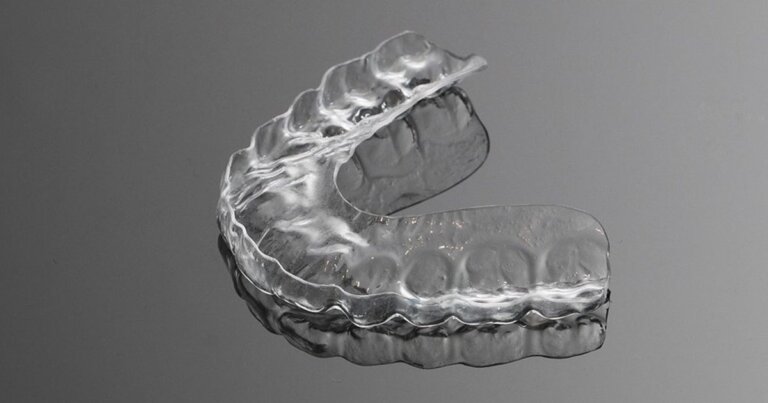
Treating Bruxism With A Dental Night Guard
Patients are often left wondering how they can stop teeth grinding or bruxism.
Dentists usually recommend patients start to use a special mouthpiece at night to protect their teeth called a Dental night guard. This is a specially designed, custom fitted plastic appliance that you wear over the upper or lower teeth. It provides a cushion between the teeth if you are teeth grinding or clenching unconsciously, thereby preventing serious dental damage.
The best mouth guard is a custom fitted one made by your general dentist. Mouth guards made by your dentist are far more comfortable and protective than non-customized, boil-and-bite guard devices purchased over the counter at local department stores, pharmacies or sporting goods stores.
At Atlas Dental, we make comfortable, soft night guard appliances for bruxism using the latest 3D scanning and 3D printing technology. The best way to prevent teeth grinding damage and jaw soreness is to schedule an appointment for a custom fitting.
Cost of Night Guard
Our Dental Night Guards protect your teeth from bruxism and teeth clenching and are made using the latest optical 3D scanning and 3D printing technology. A common question is how much a dental night guard costs. For a typical mouth guard, you can expect to pay $399 plus Lab Fee ($200). The codes relevant to night guards in the Ontario Dental Association’s Suggested Fee Guide appear as follows:
- 14611 – Maxillary Appliance: $399 + Dental Lab Fee ($200)
- 14612 – Mandibular Appliance: $399 + Dental Lab Fee ($200)
Night Guards are considered a basic service under all dental insurance plans and should be covered to your maximum insurable limit, but be sure to find out from your dental insurance plan provider how much you are eligible for before going ahead with dental treatment. Our fees are consistent with the ODA Fee Guide.
What Are The Steps to Getting A Dental Night Guard?
The process for getting the best mouth guard is quick, comfortable, and requires only two appointments. At Atlas Dental, we use the latest 3D scanning and 3D printing technology.
In the first appointment, your dentist takes a painless, comfortable 3D scan of your mouth. This part of the dental mouth guard process takes just a few minutes. No more sticky dental alginate impressions that makes you feel like vomitting!
In between dental appointments, your dentist works behind the scenes to make your dental night guard. Based on computer-generated 3D models of your upper teeth and lower teeth, a 3D model of your mouth guard is designed. The design is then fabricated using a 3D printer and special 3D printer dental resin. KeySplint Soft is fully biocompatible, and is in compliance with US Food and Drug Administration (FDA) medical device regulations and standards. The dentist then trims and polishes your mouth guard.
If you have severe bruxism and require a stiffer material, an acrylic hard night guard can be made at your request.
In the second appointment, you will try in the custom mouth guard. The dentist will assess for fit and comfort. If necessary, adjustments can be made.
By seeing the dentist, they can also help you identify vulnerable teeth that are at risk of breaking, chipping, or cracking. Weak teeth include ones with large fillings or root canal treatment, but do not have a dental crown to protect them. A dental crown is a tooth shaped cap that holds the tooth together and prevents it from breaking or chipping.
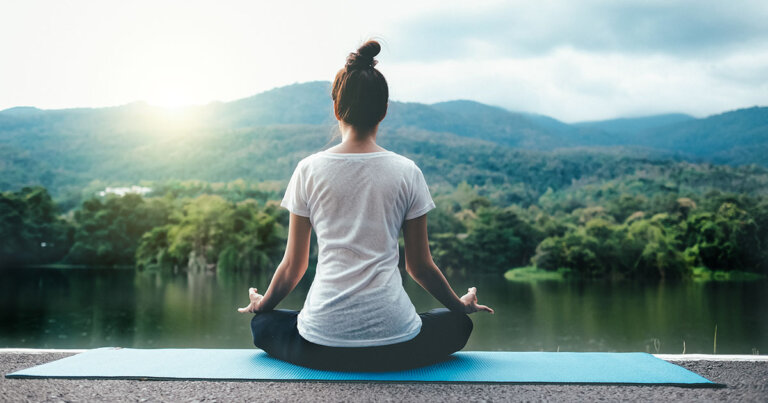
Coping With Stress Caused By The COVID-19 Pandemic
The COVID-19 pandemic may have brought many changes to how you live your life, altered daily routines, financial pressures and social isolation. You may worry about getting sick, how long the pandemic will last, whether your job will be affected and what the future will bring.
A dental night guard will prevent teeth damage, but there is no guarantee that it will stop your teeth grinding habit, prevent temporomandibular jaw joint disorders, or cure you of your stress or sleep disorder. For those problems, it is important to seek help from your family, friends, co-workers, employer and family doctor or seek help form a psychologist or counselor.
Self-care measures reduce stress in your lives will have a broad, long-lasting impact on our overall health. Here are some self-care techniques that you can integrate into your daily life:
Take care of your body
Be mindful about your physical health:
- Get enough sleep. Go to bed and get up at the same times each day. Stick close to your typical sleep-wake schedule, even if you’re staying at home.
- Participate in regular physical activity. Regular physical activity and exercise can help reduce anxiety and improve mood. Find an activity that includes movement, such as dance or exercise apps. Get outside, such as a nature trail or your own backyard.
- Eat healthy. Choose a well-balanced diet. Avoid loading up on junk food and refined sugar. Limit caffeine as it can aggravate stress, anxiety and sleep problems.
- Avoid tobacco, alcohol and drugs. If you smoke tobacco or if you vape, you’re already at higher risk of lung disease. Because COVID-19 affects the lungs, your risk increases even more. Using alcohol to try to cope can make matters worse and reduce your coping skills. Avoid taking drugs to cope, unless your doctor prescribed medications for you.
- Limit screen time. Turn off electronic devices for some time each day, including 30 to 60 minutes before bedtime. Make a conscious effort to spend less time in front of a screen — television, tablet, computer and phone.
- Relax and recharge. Set aside time for yourself. Even a few minutes of quiet time can be refreshing and help to settle your mind and reduce anxiety. Many people benefit from practices such as deep breathing, tai chi, yoga, mindfulness or meditation. Soak in a bubble bath, listen to music, or read or listen to a book — whatever helps you relax. Select a technique that works for you and practice it regularly.
Take care of your mind
Reduce stress triggers:
- Keep your regular routine. Maintaining a regular daily schedule is important to your mental health. In addition to sticking to a regular bedtime routine, keep consistent times for meals, bathing and getting dressed, work or study schedules, and exercise. Also set aside time for activities you enjoy. This predictability can make you feel more in control.
- Limit exposure to news media. Constant news about COVID-19 from all types of media can heighten fears about the disease. Limit social media that may expose you to rumors and false information. Also limit reading, hearing or watching other news, but keep up to date on national and local recommendations. Look for reliable sources, such as the U.S. Centers for Disease Control and Prevention (CDC) and the World Health Organization (WHO).
- Stay busy. Healthy distractions can get you away from the cycle of negative thoughts that feed anxiety and depression. Enjoy hobbies that you can do at home, such as reading a book, writing in a journal, making a craft, playing games or cooking a new meal. Or identify a new project or clean out that closet you promised you’d get to. Doing something positive to manage anxiety is a healthy coping strategy.
- Focus on positive thoughts. Choose to focus on the positive things in your life, instead of dwelling on how bad you feel. Consider starting each day by listing things you are thankful for. Maintain a sense of hope, work to accept changes as they occur and try to keep problems in perspective.
- Use your moral compass or spiritual life for support. If you draw strength from a belief system, it can bring you comfort during difficult and uncertain times.
- Set priorities. Don’t become overwhelmed by creating a life-changing list of things to achieve while you’re home. Set reasonable goals each day and outline steps you can take to reach those goals. Give yourself credit for every step in the right direction, no matter how small. And recognize that some days will be better than others.
Connect with others
Build support and strengthen relationships:
- Make connections. If you work remotely from home or you need to isolate yourself from others for a period of time due to COVID-19, avoid social isolation. Find time each day to make virtual connections by email, texts, phone or video chat. If you’re working remotely from home, ask your co-workers how they’re doing and share coping tips. Enjoy virtual socializing and talking to those in your home.
- If you’re not fully vaccinated, be creative and safe when connecting with others in person, such as going for walks, chatting in the driveway and other outdoor activities, or wearing a mask for indoor activities.
- If you are fully vaccinated, you can more safely return to many indoor and outdoor activities you may not have been able to do because of the pandemic, such as gathering with friends and family. However, if you are in an area with a high number of new COVID-19 cases in the last week, the CDC recommends wearing a mask indoors in public or outdoors in crowded areas or in close contact with unvaccinated people. For unvaccinated people, outdoor activities that allow plenty of space between you and others pose a lower risk of spread of the COVID-19 virus than indoor activities do.
- Do something for others. Find purpose in helping the people around you. Helping others is an excellent way to help ourselves. For example, email, text or call to check on your friends, family members and neighbors — especially those who are older. If you know someone who can’t get out, ask if there’s something needed, such as groceries or a prescription picked up.
- Support a family member or friend. If a family member or friend needs to be quarantined at home or in the hospital due to COVID-19, come up with ways to stay in contact. This could be through electronic devices or the telephone or by sending a note to brighten the day, for example.
We also think you’ll like…
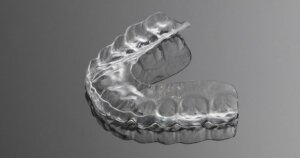
Dental Night Guard Pre-Visit Instructions
Dental Night Guard Pre-Visit Instructions What You Should Do Before Your Dental Night Guard Scan Appointment While night guards won’t prevent these habits, they do

Dental Night Guard Post-Insertion Instructions
Dental Night Guard Post-Insertion Instructions What You Should Do After Receiving Your Custom Fitted Dental Night Guard While night guards won’t prevent these habits, they

Soft Night Guard
Soft Night Guard What Is A Soft Night Guard? A Soft Night Guard is a specially designed oral appliance that aims to protect your teeth

Night Guard
Night Guard What Is A Night Guard? If you often wake up with a sore jaw, tension headaches, or notice increased tooth sensitivity, you might
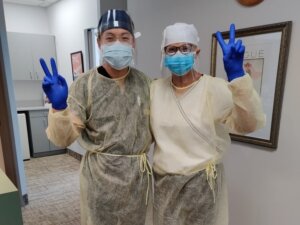
Toronto Dentist Open for Regular Dental Care During COVID-19
Toronto Dentist Open for Regular Dental Care During COVID-19 Previous Next According to the most recent Directive from the Chief Medical Officer of Health, dentists can
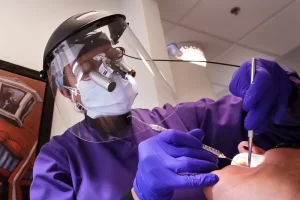
COVID-19 Omicron Variant: Are dentists open in Ontario?
COVID-19 Omicron Variant: Are dentists open in Ontario? Thursday December 9, 2021 Dental offices will remain open at this time Ontario is making progress in

